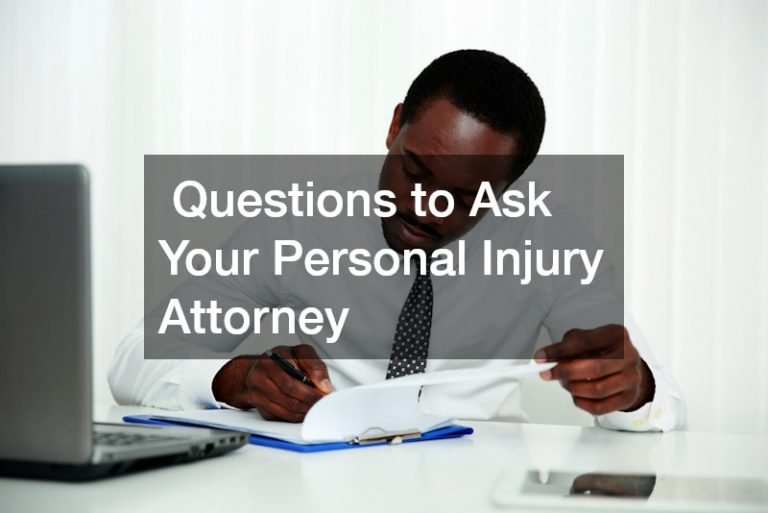Choosing the right personal injury attorney can significantly impact the outcome of your case. It’s crucial to ask the right questions to ensure you find a lawyer who meets your needs and can effectively represent your interests. Here are some essential questions to consider:
1. What is your experience in handling personal injury cases?
Understanding your attorney’s experience is vital. Ask how many personal injury cases they have handled, particularly those similar to yours. An attorney with a strong background in personal injury law will be more familiar with the nuances of these cases, increasing your chances of a favorable outcome.
2. What is your approach to cases like mine?
Each case is unique, and the attorney’s approach can vary significantly. Inquire about their strategy for handling cases like yours. This includes how they plan to investigate your claim, gather evidence, and negotiate with insurance companies. A proactive and thorough approach can be crucial in achieving a successful result.
3. What are your fees, and how do you charge?
Personal injury attorneys often work on a contingency fee basis, meaning they only get paid if you win your case. However, it’s important to clarify the percentage they will take and any other potential costs you may incur. Ensure you understand the financial arrangements before proceeding.
4. What is your success rate?
Ask about the attorney’s track record in settling cases and going to trial. A high success rate may indicate that the attorney is skilled and effective at achieving favorable outcomes for their clients. However, remember that past success doesn’t guarantee future results.
5. How will you communicate with me throughout the process?
Effective communication is key to a successful attorney-client relationship. Ask how often you can expect updates on your case and the preferred method of communication (email, phone calls, etc.). Knowing how accessible your attorney will be can help alleviate concerns and keep you informed.
6. Who will handle my case?
In larger firms, junior attorneys or paralegals might handle your case instead of the lead attorney. Ensure you know who will be working on your case and their level of experience. You want assurance that your case will receive attention from someone with the necessary expertise.
7. How long do you expect my case to take?
While every case is different, an experienced attorney should be able to provide a rough timeline based on similar cases. This can help you set your expectations regarding how long the legal process may take, including negotiations and potential trial.
8. What potential challenges do you foresee in my case?
A good attorney should be able to identify potential obstacles that may arise in your case, whether it’s gathering evidence, dealing with insurance companies, or the possibility of litigation. Understanding these challenges early can help you prepare and strategize accordingly.
9. Do you have references or testimonials from previous clients?
Asking for references or reading testimonials can provide insight into the attorney’s reputation and the experiences of previous clients. Positive feedback can help you feel more confident in your choice.
10. What is your opinion on my case?
Finally, ask the attorney for their honest assessment of your case. They should be able to discuss its strengths and weaknesses and provide you with a realistic expectation of potential outcomes. Their perspective can be invaluable in deciding how to proceed.




